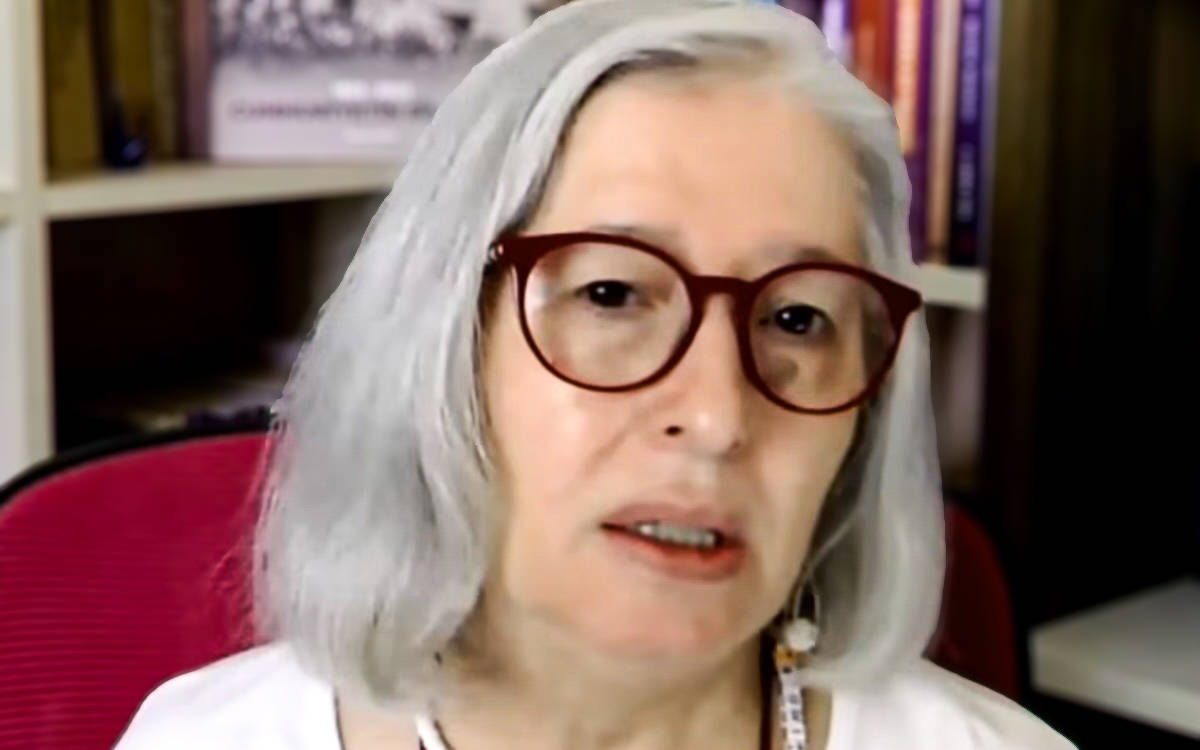Physical Address
Indirizzo: Via Mario Greco 60, Buttigliera Alta, 10090, Torino, Italy
Physical Address
Indirizzo: Via Mario Greco 60, Buttigliera Alta, 10090, Torino, Italy


Feminist writer Berrin Sönmez has removed her headscarf in protest against a recent Friday sermon by the Religious Affairs Directorate’s (Diyanet) criticizing women’s clothing as “dressed nudeness.”
The sermon, known as khutbah in Islam, outlined how women should dress in different environments.
In her column article published on Medyascope published on Aug 3, Sönmez described the sermon as “a veiled imposition of the headscarf” and “a form of retaliation for the past headscarf bans.”
“I’m uncovering my head now in case a headscarf mandate is imposed,” she wrote, challenging the Diyanet.
The khutbah, a traditional part of Muslims’ congregational Friday prayers, is centrally prepared by the Diyanet and read out in roughly 90,000 mosques across the country. Delivered by the mosque’s imam, the sermon serves as a religious guidance address to the congregation.
Sönmez said what prompted her action was not only the overall message of the sermon but also a specific passage which, she argued, implicitly urged public institutions to take initiative against women who do not wear the headscarf:
Being present in public spaces, especially in places with an institutional character, while wearing inappropriate clothing is a challenge even to the most basic moral standards. This is not modernity; it is primitiveness. Those who remain silent in the face of violations of moral and ethical values bear a heavy burden, for it is our shared responsibility to protect the chastity, decency, and morality of our youth.
Among the sermon’s other statements were:
“Revealing private parts”: “Immodesty is a disaster that destroys moral values and tramples on human dignity. It is one of Satan’s most insidious traps. As our Almighty Lord warned: ‘O children of Adam! Do not let Satan tempt you as he did your parents, stripping them of their garments to expose their nakedness.’”
“Short and transparent clothes are forbidden”: “The Messenger of Allah said, ‘Allah, the Mighty and Majestic, is forbearing, modest, and conceals faults. He loves modesty and covering.’ Thus, wearing short or transparent clothing, regardless of time or purpose, violates God’s command to dress modestly and is forbidden. Those who wear tight clothes that reveal body parts are, in the words of the Prophet, ‘clothed yet naked.’”
“Getting a tattoo is haram”: “Whatever the intention, getting a tattoo means being deprived of God’s mercy and is forbidden, according to the Prophet. Sharing images with clothing that is not approved by our religion, on screens, digital platforms, or in media, is inappropriate and forbidden in every respect.”
“Being in formal settings in inappropriate clothing is immoral”: “Being present in public, especially in official settings, in inappropriate attire is a direct challenge to even the most basic moral standards. This is not modernity, it is primitiveness. Those who remain silent while moral and ethical norms are violated bear heavy responsibility.”
In her article, Sönmez criticized the sermon from both a theological and social perspective. She recounted her personal journey with the headscarf, explaining her reasons for both adopting and later removing it.
“I started wearing the headscarf in 1981, during my second year at Ankara University’s Faculty of Language, History and Geography, when rumors spread that the Sep 12 [1980] military junta would impose a headscarf ban in universities,” she wrote. “It was a personal act of resistance, not part of an organized movement.”
She said she eventually removed it during her doctoral studies and later later resumed wearing it on the day she retired.
“At the time of my forced retirement during the Feb 28 [1997] purges, the Justice and Development Party (AKP) was gaining momentum. There were widespread fears that Turkey would turn into Iran. I didn’t believe it,” she further wrote.
“I thought it was impossible. But as an academic, I should have at least left room for a one-in-a-thousand possibility. When I put my headscarf back on that day, I made a silent pact with my Creator: If the day ever comes when headscarves are made mandatory in this country, that day I will take it off.”
Sönmez now believes that day has come, saying the Aug 1 sermon signals a shift toward imposing the headscarf.
“Sadly, the reference to ‘institutional settings’ in the sermon makes me think this is the beginning of a headscarf mandate aimed at avenging past bans. I hope I’m wrong. But I cannot ignore this signal. It’s necessary to respond while there’s still a chance to prevent it,” she wrote. (AEK/VK)